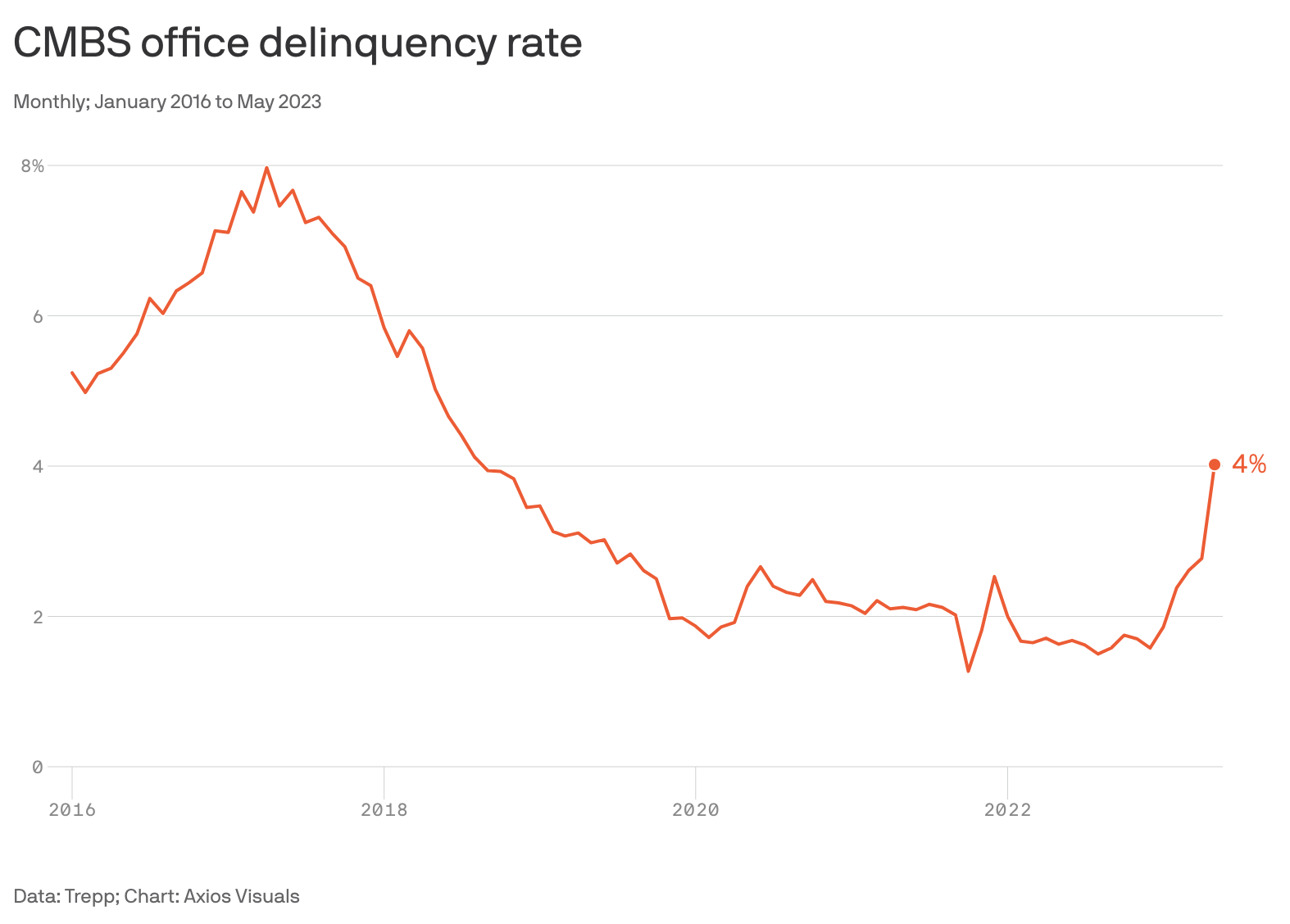Updated August 15th, 2023 by Ben Reynolds
Warren Buffett is perhaps the greatest investor of all time. He has amassed a net worth of more than $100 billion from his investing skill and business acumen.
Buffett’s wealth is tied to his ownership of Berkshire Hathaway (BRK.A, BRK.B). Berkshire owns many businesses outright, and also invests in stocks. You can instantly get a free spreadsheet of all of Berkshire’s current stock holdings below.
Warren Buffett’s words of wisdom crystalize decades of investment knowledge from the best in the business. This article contains 106 Warren Buffett quotes to teach you to snowball your wealth and become a better investor.
The article is organized by category. Click on a section to read it immediately, or read the whole article in order:
76 Warren Buffett Quotes On Investing
Quote #1
Out of the 106 Warren Buffett quotes in this article, the quote below succinctly sums up Buffett’s investment strategy:
“We select such investments on a long-term basis, weighing the same factors as would be involved in the purchase of 100% of an operating business:
(1) favorable long-term economic characteristics;
(2) competent and honest management;
(3) purchase price attractive when measured against the yardstick of value to a private owner; and
(4) an industry with which we are familiar and whose long-term business characteristics we feel competent to judge.”
The above is the basic ‘secret formula’ to Warren Buffett’s $100+ billion fortune.
The Dividend Kings are a compelling list of securities to look for stocks that line up with Buffett’s four points above. Dividend Kings are companies that have paid rising dividends for 50+ consecutive years.
They have stood the test of time, and have management teams that clearly prioritize rewarding shareholders with dividends.
Quote #2
Warren Buffett is a long-term investor. Three of his longest-term holdings are shown below:
- American Express (AXP): 1st purchase in 1964
- Coca-Cola (KO): 1st purchase in 1988
- Wells Fargo (WFC): 1st purchase in 1989
“I never attempt to make money on the stock market. I buy on the assumption that they could close the market the next day and not reopen it for five years.”
These Warren Buffett quotes show that he thinks in investing time frames of at least 5 years. But his holding period is preferably much longer…
Quotes #3 & #4
“Only buy something that you’d be perfectly happy to hold if the market shut down for 10 years.”
&
“If you aren’t willing to own a stock for 10 years, don’t even think about owning it for 10 minutes”
These quotes shows that a 10 year holing period is really what you should look for when examining stocks to buy.
Quotes #5 & #6
But even 10 years is too short a time period for outstanding businesses.
“When we own portions of outstanding businesses with outstanding managements, our favorite holding period is forever.”
&
“Time is the friend of the wonderful company, the enemy of the mediocre.”
You should not buy just any business and hold it for the long-run. Businesses with strong competitive advantages and quality managements are preferred long-term holdings.
Related: The Coffee Can Portfolio | Dividend King Stocks For The Long-Run
Quote #7
Great businesses withstand the test of time. Time itself has been very favorable to the stock market.
“Over the long term, the stock market news will be good. In the 20th century, the United States endured two world wars and other traumatic and expensive military conflicts; the Depression; a dozen or so recessions and financial panics; oil shocks; a fly epidemic; and the resignation of a disgraced president. Yet the Dow rose from 66 to 11,497.”
Warren Buffett quotes like the one above show the powerful tailwind of economic progress that pushes stable businesses to ever greater heights. Buffett recommends that “know nothing” investors capture this economic progress by owning S&P 500 stocks through low-cost index funds.
Quote #8
One advantage of buy & hold investing is lower taxes. When you don’t sell your holdings, the money you would have paid in capital gains tax is left compounding in your investment.
“Charlie and I would follow a buy-and-hold policy even if we ran a tax-exempt institution.”
Tax advantages are not the primary reason why Warren Buffett (and Charlie Munger) prefer to hold great businesses for the long run. The compounding effects (the ‘snowball effect’) of business growth are reward enough, irrespective of tax advantages.
Quotes #9, #10, #11, & #12
The four Warren Buffett quotes below use analogies and metaphors to explain the power of long-term investing.
“Someone’s sitting in the shade today because someone planted a tree a long time ago.”
&
“Calling someone who trades actively in the market an investor is like calling someone who repeatedly engages in one-night stands a romantic.”
&
“Successful Investing takes time, discipline and patience. No matter how great the talent or effort, some things just take time: You can’t produce a baby in one month by getting nine women pregnant.”
&
“Buy a stock the way you would buy a house. Understand and like it such that you’d be content to own it in the absence of any market.”
Warren Buffett quotes about not producing a baby in a month by getting nine women pregnant is especially poignant. It drives home the point that several mediocre short-term investments are not the same as one well-timed long-term investment.
This brings up another aspect of Warren Buffett’s success…
Only invest when the best opportunities present themselves – and ignore everything else.
Quote #13
Warren Buffett quotes often compare investing to a modified game of baseball. The modification: There are no strikes for not swinging. You can wait for the perfect pitch to hit out of the park.
“I call investing the greatest business in the world … because you never have to swing. You stand at the plate, the pitcher throws you General Motors at 47! U.S. Steel at 39! and nobody calls a strike on you. There’s no penalty except opportunity lost. All day you wait for the pitch you like; then when the fielders are asleep, you step up and hit it.”
Quote #14
The fielders don’t fall asleep often. Opportunities are not always there.
“You do things when the opportunities come along. I’ve had periods in my life when I’ve had a bundle of ideas come along, and I’ve had long dry spells. If I get an idea next week, I’ll do something. If not, I won’t do a damn thing.”
Opportunities come in waves. These ‘waves’ coincide with recessions (which are discussed later in this article). Dry spells are usually during protracted bull markets – when great businesses are not trading at a discount.
Quote #15
You should take full advantage of opportunities when they do come.
“Opportunities come infrequently. When it rains gold, put out the bucket, not the thimble”
Quote #16
What if we didn’t ‘swing at every pitch’? What if instead of investing in mediocre businesses at mediocre prices, we only invested in phenomenal businesses at discounted prices?
Warren Buffett quotes advise that to invest this way, you should act as if you have a limited number of times you can invest in the market.
“An investor should act as though he had a lifetime decision card with just 20 punches on it.”
The number 20 is arbitrary, but it shows how little activity is required to do well with your investments.
Quotes #17 & #18
The two Warren Buffett quotes below elaborate further on the disparity between action and results.
“You only have to do a very few things right in your life so long as you don’t do too many things wrong.”
&
“It is not necessary to do extraordinary things to get extraordinary results.”
Quote #19
Action does not equal success with investing. One well timed investment in a great business is worth dozens of good short-term ideas because the benefits of compounding continue to accrue over time with the great business.
That is why Buffett focuses on sitting and thinking rather than acting rashly.
“I insist on a lot of time being spent, almost every day, to just sit and think. That is very uncommon in American business. I read and think. So I do more reading and thinking, and make less impulse decisions than most people in business.”
You must be sure of your investments when investing infrequently. This means staying in your circle of competence.
Quote #20
You don’t have to be an expert on every stock to find great businesses trading at fair or better prices.
The less complicated an investment is, the less room for error in your analysis. Similarly, sticking to investing in businesses you understand reduces investing mistakes.
Warren Buffett calls sticking with what you know staying in your “circle of competence”.
“What an investor needs is the ability to correctly evaluate selected businesses. Note that word ‘selected’: You don’t have to be an expert on every company, or even many. You only have to be able to evaluate companies within your circle of competence. The size of that circle is not very important; knowing its boundaries, however, is vital.”
Quote #21
Warren Buffett says knowing the boundaries of your circle of competence is more important than having a large circle of competence.
“What counts for most people in investing is not how much they know, but rather how realistically they define what they don’t know.”
Knowing what you don’t know runs contrary to human nature. Most people don’t like admitting their own ignorance – even to themselves.
Quote #22
Everyone knows at least one ‘know-it-all’. If you want to invest well, don’t be a know-it-all.
“There is nothing wrong with a ‘know nothing’ investor who realizes it. The problem is when you are a ‘know nothing’ investor but you think you know something.”
If you know you don’t know much about investing, don’t fool yourself. Instead, invest in the world’s best dividend paying businesses through high quality dividend ETFs.
Quote #23
Warren Buffett’s IQ is ‘a couple of points above 150‘. He is incredibly smart. But genius is not a requirement to realize exceptional investing results.
“You don’t need to be a rocket scientist. Investing is not a game where the guy with the 160 IQ beats the guy with 130 IQ.”
Quote #24
Knowing the limits of your circle of competence is more important than being brilliant and thinking your circle of competence includes all stocks. There’s no mistaking Buffett’s business genius. But even Buffett does not think he can accurately assess all businesses.
“We make no attempt to pick the few winners that will emerge from an ocean of unproven enterprises. We’re not smart enough to do that, and we know it. Instead, we try to apply Aesop’s 2,600-year-old equation to opportunities in which we have reasonable confidence as to how many birds are in the bush and when they will emerge.”
Don’t try to be smarter than Buffett. You likely aren’t – and that’s okay. Neither am I. Neither is nearly every other investor. Instead of taking unnecessary risks, invest in great businesses you understand when they go on sale. It doesn’t take a rocket scientist to invest in this manner.
Quote #25
Investors can be divided into two broad categories:
- Bottom up investors
- Top down investors
Top down investors look for rapidly growing industries or macroeconomic trends. They then try to find good investments that will capitalize on these trends.
Bottom up investors do they exact opposite. They look for individual investment opportunities irrespective of industry or macroeconomic trends.
Warren Buffett wants to invest in great businesses. He is a bottom up investor.
“The key to investing is not assessing how much an industry is going to affect society, or how much it will grow, but rather determining the competitive advantage of any given company and, above all, the durability of that advantage.”
Understanding the competitive advantage of a business requires a sufficiently evolved understanding of the operations of a business.
Quote #26
Buffett prefers to invest in businesses that have differentiated themselves from the competition. Commodity selling businesses don’t have a differentiator (unless they are the low cost producer).
“Stocks of companies selling commodity-like products should come with a warning label: ‘Competition may prove hazardous to human wealth.’”
Quote #27
Commodity business (in general) are not quality businesses for long-term investors. The reasons is because competition will erode margins and make investing in the business a zero-sum game.
Commodity businesses that have found a way to survive are not great businesses. The analogy below emphasizes this point:
“A horse that can count to ten is a remarkable horse—not a remarkable mathematician.”
Don’t invest in horses that can count to 10. Invest in businesses with a strong competitive advantage that allows for large excess profits…
And make sure that company’s competitive advantage is durable.
Quote #28
“Our approach is very much profiting from lack of change rather than from change. With Wrigley chewing gum, it’s the lack of change that appeals to me.”
Chewing gum doesn’t change much. Neither does Coca-Cola (KO), or banking with Wells Fargo (WFC), or Ketchup at Kraft-Heinz (KHC). Buffett invests in slow changing businesses because they will compound growth over the long run.
Businesses in rapidly changing industries have shorter periods of time in which they can compound investor wealth.
Now that we have covered what to buy, it is time to see Warren Buffett’s thoughts on when to buy.
Warren Buffett’s buying wisdom can be condensed into 2 statements:
- Buy great businesses when they are trading at fair or better prices.
- This occurs when short-term traders become pessimistic
Quote #29
“Long ago, Ben Graham taught me that ‘Price is what you pay; value is what you get.’ Whether we’re talking about socks or stocks, I like buying quality merchandise when it is marked down.”
In the quote above, Buffett explains that he acquired his value-focused mindset from his mentor Benjamin Graham. Graham was the father of value investing and a fantastic investor in his own right.
There is a stark difference in investing style between Graham and Buffett, however.
Graham focused on deep value plays – businesses that were trading below liquidation value. These were typically poor businesses that were undervalued because they had such bad future prospects.
Quote #30
Buffett focuses on great businesses trading at fair or better prices, as the quote below clarifies.
“It’s far better to buy a wonderful company at a fair price than a fair company at a wonderful price”
Wonderful companies compound your wealth year-after-year. Poor quality businesses that are exceptionally cheap only grow your wealth once (when you sell them – hopefully for a profit).
Quote #31
Note that Buffett does not say to buy great businesses at any price.
“For the investor, a too-high purchase price for the stock of an excellent company can undo the effects of a subsequent decade of favorable business developments.”
Overpaying severely limits the growth of your wealth. If you pay for a large part of future growth today, you will not benefit from that growth down the line. Great businesses can be overvalued.
Quote #32
“Most people get interested in stocks when everyone else is. The time to get interested is when no one else is. You can’t buy what is popular and do well.”
You don’t need to be a contrarian to do well in investing, but you do need to exhibit emotional control and be realistic.
Quote #33
Just as great businesses can be overvalued, they can also be undervalued.
“The best thing that happens to us is when a great company gets into temporary trouble…We want to buy them when they’re on the operating table.”
Quote #34
It’s not easy to buy great businesses when they are ‘on the operating table’. That’s because the zeitgeist is decidedly against buying – stocks become undervalued because the general consensus is negative. Intelligent investors profit from irrational fears.
“Be fearful when others are greedy and greedy only when others are fearful.”
Quotes #35 & #36
Fear and market corrections create opportunities for more patient, long-term investors. The two quotes below expand upon this.
“So smile when you read a headline that says ‘Investors lose as market falls.’ Edit it in your mind to ‘Disinvestors lose as market falls—but investors gain.’ Though writers often forget this truism, there is a buyer for every seller and what hurts one necessarily helps the other.”
&
“The most common cause of low prices is pessimism—some times pervasive, some times specific to a company or industry. We want to do business in such an environment, not because we like pessimism but because we like the prices it produces. It’s optimism that is the enemy of the rational buyer.”
Paying too high a price is an investing risk that can be avoided (for the most part) by staying disciplined.
Buying is only half of investing. The next several quotes cover when to sell.
Quote #37
Warren Buffett’s advice on when to sell is fairly straightforward. Sell when the business you are invested is performing poorly (and will likely continue to do so).
“Should you find yourself in a chronically leaking boat, energy devoted to changing vessels is likely to be more productive than energy devoted to patching leaks.”
Quote #38
As an individual investor, you can’t fix a declining business. Your energy is best spent cutting losses and moving on.
“The most important thing to do if you find yourself in a hole is to stop digging.”
Buffett sells infrequently. He is a long-term investor that would rather hold forever than sell as long as a business maintains its competitive advantage. Even Buffett gets it wrong sometimes. When you make a mistake, learn from it and cut your losses.
Selling businesses in decline is a form of risk management.
Modern portfolio theory argues that stock price volatility is a proxy for risk. Wide diversification is preferred over concentrated investing.
Quote #39
Buffett has invested in a far more concentrated manner. Here’s where Buffett says risk comes from:
“Risk comes from not knowing what you’re doing.”
Quote #40
Buffett places an emphasis on knowing what he is doing by staying in his circle of competence.
“Rule No. 1: never lose money; rule No. 2: don’t forget rule No. 1”
Quote #41
In fact, he prefers minimal risk to higher risk and potentially higher profits.
“When forced to choose, I will not trade even a night’s sleep for the chance of extra profits.”
Quotes #42 & #43
Rather than invest broadly in businesses he is less confident in, Buffett runs a focused portfolio invested in his highest conviction ideas, as the two quotes below show.
“Keep all your eggs in one basket, but watch that basket closely.”
&
“Diversification is a protection against ignorance. It makes very little sense for those who know what they’re doing.”
Quote #44
Buffett does not use diversification to mitigate risk. Instead, he reduces risk by examining businesses closely and understanding their competitive advantage.
“We believe that a policy of portfolio concentration may well decrease risk if it raises, as it should, both the intensity with which an investor thinks about a business and the comfort-level he must feel with its economic characteristics before buying into it. In stating this opinion, we define risk, using dictionary terms, as “the possibility of loss or injury.”
Quote #45
A rising tide lifts all boats. In bull markets, investors who take on more risk by using leverage will look like geniuses. When sentiment changes and a recession occurs, these leveraged portfolios will not look so smart.
“It’s only when the tide goes out that you learn who has been swimming naked.”
Quotes #46 & #47
Warren Buffett does use some leverage in his investing (contrary to quotes in this article), but he only uses non-callable, ultra-low interest leverage. He also does not leverage himself excessively. More of Buffett’s thoughts on leverage are in the two quotes below.
“When you combine ignorance and leverage, you get some pretty interesting results.”
&
“I’ve seen more people fail because of liquor and leverage – leverage being borrowed money. You really don’t need leverage in this world much. If you’re smart, you’re going to make a lot of money without borrowing.”
Avoiding excess leverage and being cautious with your investments takes will power and maturity. In addition to liquor and leverage, Buffett also advises investors to be wary of forecasts.
The financial industry produces a great deal of forecasts. Economists and financial analysts make a plethora of guesses about company growth rates, country growth rates, margins, and much more.
Quote #48
Warren Buffett does not believe these forecasts are particularly valuable.
“We’ve long felt that the only value of stock forecasters is to make fortune tellers look good. Even now, Charlie and I continue to believe that short-term market forecasts are poison and should be kept locked up in a safe place, away from children and also from grown-ups who behave in the market like children.”
Quote #49
Instead of guessing at future growth rates, Buffett looks for great businesses that are trading at fair or better prices now.
“In the 54 years (Charlie Munger and I) have worked together, we have never forgone an attractive purchase because of the macro or political environment, or the views of other people. In fact, these subjects never come up when we make decisions.”
Quote #50
Forecasts do have some value, however. They tell you what the forecaster is thinking.
“Forecasts may tell you a great deal about the forecaster; they tell you nothing about the future.”
Quote #51
Investing success comes from a mix of understanding history and understanding the current competitive position of businesses. Wise investors learn from their own past mistakes – and those of others.
“The best thing is to learn from other guy’s mistakes. [General George S.] Patton used to say, “It’s an honor to die for your country; make sure the other guy gets the honor.” There are a lot of mistakes that I’ve repeated. The biggest one, the biggest category over time, is being reluctant to pay up a little for a business that I knew was really outstanding.”
Quote #52
The history of a business will tell you more about that business than guesses about the future (forecasts).
“In the business world, the rearview mirror is always clearer than the windshield.”
Quote #53
Unfortunately few investors (and people in general) learn from their own mistakes or mistakes made throughout history.
“What we learn from history is that people don’t learn from history.”
Quote #54
A detailed analysis of a business’ history is not all you need for successful investing. You must also understand valuation and the current competitive advantage of a business. You can put too great an emphasis on history.
“If past history was all that is needed to play the game of money, the richest people would be librarians.”
Quote #55
This is especially true of highly specific (not broad-based) quantitative models that rely on a great many assumptions to work. Investing should not be overly complicated. The more assumptions you make, the more likely you are to be wrong.
“Investors should be skeptical of history-based models. Constructed by a nerdy-sounding priesthood using esoteric terms such as beta, gamma, sigma and the like, these models tend to look impressive. Too often, though, investors forget to examine the assumptions behind the models. Beware of geeks bearing formulas.”
The realization that few people learn from history is best exemplified by investor ‘irrational exuberance’ during the height of bull markets and investing manias.
But it’s not just individual investors that create market bubbles…
Quotes #56 & 57
When you think about stock market investors, what comes to mind?
Do you picture an army of Ivy League educated MBAs making detailed and rational decisions about what to invest in?
There are a lot of extremely intelligent people in the investing industry… But markets as a whole are prone to irrationality. People are greedy and fearful. When easy money is around (bull markets), greed pushes people to take greater risks than they otherwise would.
“You need to divorce your mind from the crowd. The herd mentality causes all these IQ’s to become paralyzed. I don’t think investors are now acting more intelligently, despite the intelligence. Smart doesn’t always equal rational. To be a successful investor you must divorce yourself from the fears and greed of the people around you, although it is almost impossible.”
&
“Nothing sedates rationality like large doses of effortless money.”
Quote #58
Bull markets make mediocre investors think and believe they are investing geniuses because of the gains they see in their investment account.
“In a bull market, one must avoid the error of the preening duck that quacks boastfully after a torrential rainstorm, thinking that its paddling skills have caused it to rise in the world. A right-thinking duck would instead compare its position after the downpour to that of the other ducks on the pond.”
Quote #59
You have to do things differently to avoid taking too much risk during market manias. Misery loves company. No one gets blamed for failing when everyone else is.
“Failing conventionally is the route to go; as a group, lemmings may have a rotten image, but no individual lemming has ever received bad press”
Quote #60
Bubbles typically start with a good reason. Those who get in early do well. It’s the individual investor who is the last to catch on that ends up holding the bag.
“What the wise do in the beginning, fools do in the end.”
Quote #61
All bubbles burst, eventually. When they do, investors relearn the same lessons over again.
“But a pin lies in wait for every bubble. And when the two eventually meet, a new wave of investors learns some very old lessons: First, many in Wall Street — a community in which quality control is not prized — will sell investors anything they will buy. Second, speculation is most dangerous when it looks easiest.”
Quote #62
Being able to maintain an even keel and not overreact to optimism or pessimism is critical for investing success.
“The most important quality for an investor is temperament, not intellect. You need a temperament that neither derives great pleasure from being with the crowd or against the crowd.”
Quote #63
Sober judgement is a precious resource in a world of emotional investors.
“You’re dealing with a lot of silly people in the marketplace; it’s like a great big casino and everyone else is boozing. If you can stick with Pepsi, you should be O.K.”
Quote #64
Does this mean you should always do what is opposite of the consensus? No, you should act irrespective of the consensus. Sometimes the crowd will agree with you, sometimes it doesn’t. You should be equally comfortable with either situation.
“In some corner of the world they are probably still holding regular meetings of the Flat Earth Society. We derive no comfort because important people, vocal people, or great numbers of people agree with us. Nor do we derive comfort if they don’t.”
Controlling behavior is a much larger part of investing success than many investors first realize.
Quotes #65 & 66
Another aspect of successful investing is to make things as easy as possible. Look for investments that are easy to understand – you are less likely to make errors in valuing this type of business. The two Warren Buffett quotes below explain this idea:
“I don’t look to jump over 7-foot bars: I look around for 1-foot bars that I can step over.”
&
“There seems to be some perverse human characteristic that likes to make easy things difficult”
Quote #67
If you don’t ‘get’ investing, don’t keep investing in individual businesses. It’s far better to invest in high quality dividend ETFs than to play a game where you are the patsy.
“If you’ve been playing poker for half an hour and you still don’t know who the patsy is, you’re the patsy.”
Quote #68
Keeping with the analogy of investing and games, one should look out for the next great investment opportunity – not obsess over past performance.
“Games are won by players who focus on the playing field –- not by those whose eyes are glued to the scoreboard.”
Quote #69
The ‘playing field’ is most attractive when there has been a recession. Of course – you will also have businesses that decline in value during recessions. You should not invest in equities in general if you cannot withstand this volatility.
“You shouldn’t own common stocks if a 50% decrease in their value in a short period of time would cause you acute distress.”
Quote #70
The above Warren Buffett quotes on investing have covered what type of businesses to invest in (high quality), and when to invest (when the business goes on sale). Who is running the business – the company’s management team – is another important aspect of investing.
“I try to buy stock in businesses that are so wonderful that an idiot can run them because sooner or later, one will.”
Quote #71
Wonderful businesses can sustain poor management for a short period of time. The same is not true in reverse.
“When a management with a reputation for brilliance tackles a business with a reputation for bad economics, it is the reputation of the business that remains intact.”
Quote #72
When you are invested in a business with a strong competitive advantage, management should be strengthening that competitive advantage, not venturing out on unrelated projects.
“Loss of focus is what most worries Charlie and me when we contemplate investing in businesses that in general look outstanding. All too often, we’ve seen value stagnate in the presence of hubris or of boredom that caused the attention of managers to wander.”
Quote #73
Managements wander when they get bored. Acquisitions and large business deals typically raise management’s collective pulse – even if the deal is not particularly attractive.
“Talking to Time Magazine a few years back, Peter Drucker got to the heart of things: ‘I will tell you a secret: Dealmaking beats working. Dealmaking is exciting and fun, and working is grubby. Running anything is primarily an enormous amount of grubby detail work . . . dealmaking is romantic, sexy. That’s why you have deals that make no sense.’”
Quote #74
Perhaps the most dangerous thing a management team can do is to manage for accounting statement ‘success’ rather than real world growth.
“In the long run managements stressing accounting appearance over economic substance usually achieve little of either.”
Quote #75
Warren Buffett’s take on the institutional imperative and its negative effect on rationality is below:
“Rationality frequently wilts when the institutional imperative comes into play. For example:
(1) As if governed by Newton’s First Law of Motion, an institution will resist any change in its current direction;
(2) Just as work expands to fill available time, corporate projects or acquisitions will materialize to soak up available funds;
(3) Any business craving of the leader, however foolish, will be quickly supported by detailed rate-of-return and strategic studies prepared by his troops; and
(4) The behavior of peer companies, whether they are expanding, acquiring, setting executive compensation or whatever, will be mindlessly imitated.”
Quote #76
How do businesses fight the institutional imperative? By having the right people in place, and by having a culture focused on value creation for shareholders.
“Culture, more than rule books, determines how an organization behaves.”
Warren Buffett Quotes On Personal Finance (Money)
Who better to take financial advice from than one of the richest people in the world? The quotes below show Warren Buffett’s wisdom and advice surrounding personal finance issues and money.
Quote #77
Buffett never doubted he would become rich – even at an early age.
“I always knew I was going to be rich. I don’t think I ever doubted it for a minute. ”
Quotes #78 & #79
Creating wealth requires interacting with others. Who you work with has a very real impact on your life.
The next two quotes show Warren Buffett’s views on where to work and who to work with.
“People always ask me where they should go to work, and I always tell them to go to work for whom they admire the most.”
&
“I learned to go into business only with people whom I like, trust, and admire.”
Quotes #80 – #83
Warren Buffett is also an advocate of doing work you are passionate about.
“Never give up searching for the job that you are passionate about”
&
“…not doing what we love in the name of greed is very poor management of our lives.”
&
“In the world of business, the people who are most successful are those who are doing what they love.”
&
“There comes a time when you ought to start doing what you want. Take a job that you love. You will jump out of bed in the morning. I think you are out of your mind if you keep taking jobs that you don’t like because you think it will look good on your resume. Isn’t that a little like saving up sex for your old age?”
Quote #84
You cannot become an expert at something without devoting great time to it. Passion is important.
“Intensity is the price of excellence.”
Quotes #85 – #87
Your job provides income. That is one half of the personal finance equation. Expenses are the other.
Buffett has famously lived a modest lifestyle despite his tremendous wealth. Part of the reason his wealth has grown to such enormous levels is because he did control his expenses and kept his money invested rather than spent it frivolously.
“I’m not interested in cars and my goal is not to make people envious. Don’t confuse the cost of living with the standard of living.”
&
“Do not save what is left after spending; instead spend what is left after saving.”
&
“If you buy things you do not need, soon you will have to sell things you need.”
Quote #88
If you are in the habit of overspending, it is critically important to break the habit now.
“Chains of habit are too light to be felt until they are too heavy to be broken.”
Quote #89
Money saved is money that can be invested to grow over time.
Your savings should be invested into great businesses that will compound your wealth. Time in the market is more important than timing the market. The earlier you start investing, the more times you can multiply your wealth.
“By the age of 10, I’d read every book in the Omaha public library about investing, some twice. You need to fill your mind with various competing thoughts and decide which make sense. Then you have to jump in the water – take a small amount of money and do it yourself. Investing on paper is like reading a romance novel vs. doing something else. You’ll soon find out whether you like it. The earlier you start, the better.”
Warren Buffett Quotes On Life
Success is not measured in dollar terms alone. The quotes below show Buffett’s take on various life questions.
Quote #90
Personal growth is critical no matter how you define success. You have to choose to make yourself better over time to get the most out of life.
“The most important investment you can make is in yourself.”
Quote #91
Investing in yourself means taking care of yourself. Buffett does not drink alcohol or do drugs (other than the caffeine in Coca-Cola).
“Imagine that you had a car and that was the only car you’d have for your entire lifetime. Of course, you’d care for it well, changing the oil more frequently than necessary, driving carefully, etc. Now, consider that you only have one mind and one body. Prepare them for life, care for them. You can enhance your mind over time. A person’s main asset is themselves, so preserve and enhance yourself.”
Quote #92
The amount of time you have on this planet determines how much you can compound your knowledge, skill, and wealth.
“Life is like a snowball. The important thing is finding wet snow and a really long hill. ”
Quote #93
Merely being alive doesn’t mean you are using your time effectively. Time is our most valuable resource, and we must manage it effectively.
“You’ve gotta keep control of your time, and you can’t unless you say no. You can’t let people set your agenda in life.”
Quote #94
Spending your time on your most important tasks will increase your effectiveness many times over throughout your life. Focus on the best, forget the rest.
“The difference between successful people and really successful people is that really successful people say no to almost everything.”
Quote #95
We all say ‘yes’ to some people and some opportunities. Who you say yes to matters. Do your best to partner with people better than you are.
“It’s better to hang out with people better than you. Pick out associates whose behavior is better than yours and you’ll drift in that direction.”
Quote #96
How do you know when someone is serious? When their bank account comes into play.
“Writing a check separates a commitment from a conversation.”
Quote #97
Who we associate with and who we look up to matters. It gives a reflection of who we are and who we are going to be.
“Tell me who your heroes are and I’ll tell you how you’ll turn out to be.”
Quote #98
Who you associate with also has a direct effect on your reputation.
“It takes 20 years to build a reputation and five minutes to ruin it. If you think about that, you’ll do things differently.”
Quote #99
That’s why it is so important to associate with honest people. The importance of honesty can hardly be overstated.
“Honesty is a very expensive gift, don’t expect it from cheap people.”
Quote #100
Just as honesty from others is important, it’s important to be honest with yourself. You want to have a great relationship with the ‘man in the mirror’.
“I had a great teacher in life in my father. But I had another great teacher in terms of profession in terms of Ben Graham. I was lucky enough to get the right foundation very early on. And then basically I didn’t listen to anybody else. I just look in the mirror every morning and the mirror always agrees with me. And I go out and do what I believe I should be doing. And I’m not influenced by what other people think.”
Quote #101
Some very wealthy people have a sense of guilt about their wealth. Warren Buffett does not share this sense of guilt.
“I don’t have a problem with guilt about money. The way I see it is that my money represents an enormous number of claim checks on society. It’s like I have these little pieces of paper that I can turn into consumption. If I wanted to, I could hire 10,000 people to do nothing but paint my picture every day for the rest of my life. And the GDP would go up. But the utility of the product would be zilch, and I would be keeping those 10,000 people from doing AIDS research, or teaching, or nursing. I don’t do that though. I don’t use very many of those claim checks. There’s nothing material I want very much. And I’m going to give virtually all of those claim checks to charity when my wife and I die.”
If you invest wisely and are lucky enough to enjoy a long life, your mind will naturally turn to your legacy and giving back.
As a billionaire more than 100 times over, Warren Buffett has a lot of money to leave to his heirs or give to charity. It makes sense that Buffett has put a great deal of thought into charity and his legacy.
Quote #102
Buffett does not believe the corporation should give to the CEO’s pet causes. Charity is personal and should be handled personally. Every shareholder has a different idea of how to donate to charity – we all have different causes that are important to us.
“If your employees, including your CEO, wish to give to their alma maters or other institutions to which they feel a personal attachment, we believe they should use their own money, not yours.”
Quote #103
Buffett is going to donate the vast majority of his wealth to charity. He is going to leave his children something, however.
“I believe in giving my kids enough so they can do anything, but not so much that they can do nothing.”
What the super-rich leave their children is a delicate topic that is very large. Buffett hits on the balancing act between giving children too much money so that they lose motivation, while at the same time being able to finance their ambitions.
Quotes From Berkshire’s 2022 Annual Report
Berkshire Hathaway conveniently lists all of its annual reports on one page, going back to 1995. The most recent 2022 annual report has more timeless quotes from Warren Buffett. Three of these are analyzed below.
Quote #104
“We are understanding about business mistakes; our tolerance for personal misconduct is zero.”
Buffett and Berkshire have a ‘zero tolerance’ policy toward personal misconduct. Since reputation takes a lifetime to build but can be quickly destroyed, companies that tolerate less-than-stellar morality tend to destroy there reputations, and in turn their brands.
Quote #105
“Our goal… is to make meaningful investments in businesses with both long-lasting favorable economic characteristics and trustworthy managers. Please note particularly that we own publicly-traded stocks based on our expectations about their long-term business performance, not because we view them as vehicles for adroit purchases and sales. That point is crucial: Charlie and I are not stock-pickers; we are business-pickers.”
The above quote elucidates what Buffett and Munger look for in their stock investments. Namely, “favorable economic characteristics and trustworthy managers”. And when they find that combination, they look to invest for the long run to take advantage of long-term business growth. They don’t buy to turn around and sell next month or next quarter.
Quote #106
“One advantage of our publicly-traded segment is that – episodically – it becomes easy to buy pieces of wonderful businesses at wonderful prices. It’s crucial to understand that stocks often trade at truly foolish prices, both high and low. ‘Efficient’ markets exist only in textbooks. In truth, marketable stocks and bonds are baffling, their behavior usually understandable only in retrospect.”
Stock market valuations are based on what other people will pay. Valuations, in theory, are based on expectations of future cash flows discounted back to present value. When pessimism abounds, future cash flows are can be discounted far more than what a sober analysis would show. This results in times when investors can ‘buy pieces of wonderful businesses at wonderful prices’ in the stock market.
Final Thoughts
Warren Buffett is arguably the greatest investor of all time.
This article examined 106 Warren Buffett quotes to give you deeper insight into the thought processes of Buffett.
These Warren Buffett quotes show that he looks for:
- Businesses with strong competitive advantages
- Trading at fair or better prices
- With shareholder friendly managements
- That can be held for the long run
You can see Buffett’s Berkshire stock portfolio here to see real-world examples of what he invests in.

Buffett is a life-long learner. He advocates for continual self-improvement. He waits for great opportunities to come in business, and does not act until they do.
Whether you are an investor, investment professional, manager, or looking for new ways to improve yourself, you likely have something to learn from Warren Buffett quotes.
Thanks for reading this article. Please send any feedback, corrections, or questions to [email protected].















